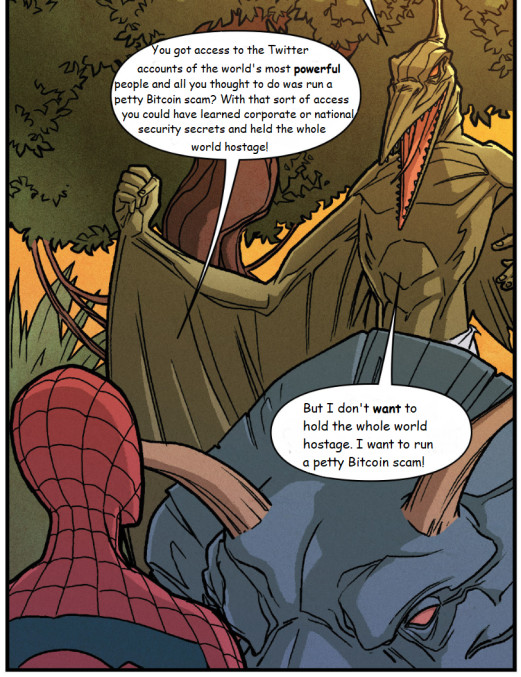At the 2009 Library of Congress workshop on Architectures for Digital Preservation, Dave Anderson of Seagate presented the company's roadmap for hard disks He included this graph projecting that the next recording technology, Heat Assisted Magnetic Recording (HAMR), would take over in the next year, and would be supplanted by a successor technology called Bit Patterned Media around 2015.
I started expressing my gradually increasing skepticism the following year. Now, nearly eleven years after Dave's talk, it is time to follow me below the fold for another update.
I'm David Rosenthal, and this is a place to discuss the work I'm doing in Digital Preservation.
Tuesday, July 28, 2020
Tuesday, July 21, 2020
Twitter Fails Security 101 Again
 |
| Source |
It was about 4 in the afternoon on Wednesday on the East Coast when chaos struck online. Dozens of the biggest names in America — including Joseph R. Biden Jr., Barack Obama, Kanye West, Bill Gates and Elon Musk — posted similar messages on Twitter: Send Bitcoin and the famous people would send back double your money.Two days later Nathaniel Popper and Kate Conger's Hackers Tell the Story of the Twitter Attack From the Inside was based on interviews with some of the perpetrators:
Mr. O'Connor said other hackers had informed him that Kirk got access to the Twitter credentials when he found a way into Twitter’s internal Slack messaging channel and saw them posted there, along with a service that gave him access to the company’s servers. People investigating the case said that was consistent with what they had learned so far. A Twitter spokesman declined to comment, citing the active investigation.Below the fold, some commentary on this and other stories of the fiasco.
Thursday, July 9, 2020
Inefficiency Is Good!
Back in 2015 I wrote Brittle systems and Pushing back against network effects, among other things about the need for resilient systems and the importance of antitrust enforcement in getting them:
All over this blog (e.g. here) you will find references to W. Brian Arthur's Increasing Returns and Path Dependence in the Economy because it pointed out the driving forces, often called network effects, that cause technology markets to be dominated by one, or at most a few, large players. This is a problem for digital preservation, and for society in general, for both economic and technical reasons. The economic reason is that these natural but unregulated monopolies extract rents from their customers. The technical reason is that they make the systems upon which society depends brittle, subject to sudden, catastrophic and hard-to-recover-from failures.Now, the pandemic has inspired two writers to address the bigger version of the same problem, Bruce Schneier in The Security Value of Inefficiency and Jonathan Aldred in This pandemic has exposed the uselessness of orthodox economics. Below the fold, some commentary.
Subscribe to:
Comments (Atom)
